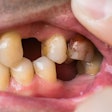
One of the biggest challenges for dental practices in the COVID-19 era is that information, rules, and expectations are changing almost weekly. One of the best ways to address rapid change is to set specific numerical targets or goals. This allows a practice to know exactly where it stands and quickly make modifications when necessary. To that end, the Levin Group has always advocated that practices work toward achieving 25 targets each month. However, in a crisis the most important targets need an even greater focus. And the most important target has always been practice production.
Dental practices have many objectives. These include providing optimal oral healthcare for patients, continually improving clinical quality through education and technology, creating a pleasant environment for patients, and designing a culture where the doctor and team can enjoy high levels of satisfaction. All these objectives are admirable and can be achieved through excellent leadership and by creating a vision, mission, and core values. But, in times of crisis, the practice also must focus on both short-term survival and long-term success. This means that production becomes the single most important factor in terms of day-to-day operations.
 Roger P. Levin, DDS, is the executive founder of the Dental Business Study Clubs.
Roger P. Levin, DDS, is the executive founder of the Dental Business Study Clubs.Increasing practice production
The good news is that, after the shutdown, there is nowhere to go but up, especially since prior to the COVID-19 crisis, most dental practices were already operating at 30% to 50% below their production potential. You're probably wondering how these practices left so much production on the table. The reason is that most practices worked only up to the level of production and income that were acceptable to the dentist and didn't feel the need to push hard to build up the practice even further. All of this was acceptable -- until the world was struck by the pandemic.
Production = revenue = cash = income
In a crisis, dental practices must refocus on production because production leads to revenue, cash, and income. Production will create revenue if the collection target is achieved, revenue will create the cash necessary to protect the practice, and available cash often becomes income for the doctor. As you can see, this formula starts with production. When basic practice systems are properly executed, production will be sufficient and revenue, cash, and income are almost always assured.
3 targets you need to hit
Production: In the recovery stage of the COVID-19 crisis, most practices will see production declining. This happened in the Great Recession (2008-2009) when 75% of dental practices declined in production for almost four years. This is evidence that dental practices that don't make necessary modifications during this time will be at a lower production level for three years or more once the economy is restarted.
One of the most important ways to avoid this and increase practice production will be to reactivate patients. The Levin Group recommends a target of reactivating over 90% of patients who became unscheduled during the COVID-19 crisis. If the patient flow is sufficient, the practice will experience less production decline and be positioned to grow very quickly. We suggest that you focus intensely on a daily system of communicating with patients, motivating patients to schedule, and continually monitoring patients without appointments. It can take up to nine positive communications with patients to have them schedule, but it is well worth the effort.
Collections: Dental practice collection systems must be effectively executed every day. The Levin Group recommends a new concept called the "one-day rule" that can be applied to the collection process. It simply states that any patient who is one day overdue for payment will be contacted that same day and once a week for the next nine weeks. This is a simple but rigid system that will allow practices to collect the recommended target of 98% of all adjusted production. We've seen many practices reach this level once the right collection system was put in place.
Insurance is another area that should be improved. Research indicates that 20% to 40% of insurance claims are either improperly coded or include mistakes. We recently saw a $1.1 million practice that was losing $80,000 per year by using unacceptable insurance codes. Making sure that your insurance codes are correct is another useful way to increase practice collections.
Case presentation: As one of our consultants recently stated, "It's essential to tell our clients that they have to present, present, present." That sounds obvious, but with all the business associated with post-COVID-19, many doctors are forgetting to present identified treatment to patients. Focusing on comprehensive diagnosis and excellent case presentation will help to fill the schedule and increase production. Remember to schedule all new patients within seven to 10 days so that there is a greater likelihood that they will show up and accept treatment.
Summary
Practice production is the single most important factor in the COVID-19 crisis recovery, and it will remain this way for the duration of the normal recession recovery period of about four to five years. Unfortunately, this could be even longer because of health and safety concerns. Practices that use the strategies above to help increase production will remain financially secure.
Roger P. Levin, DDS, is the executive founder of the Dental Business Study Clubs. To contact Dr. Levin or to join the 40,000 dental professionals who receive his Practice Production Tip of the Day, visit www.levingroup.com or email [email protected].
The comments and observations expressed herein do not necessarily reflect the opinions of DrBicuspid.com, nor should they be construed as an endorsement or admonishment of any particular idea, vendor, or organization.



















